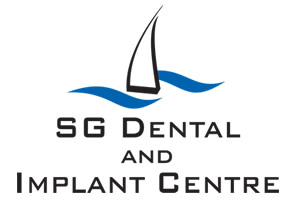Why Do Dentures Become Unstable?
Loose, uncomfortable dentures are common, but why is that and what can we do about it?
It is thought that there are somewhere in the region of 11 million denture wearers in the UK, that is around one in six of us. Some of these will be quite happy with theirs but others may well find that their dentures are not as secure and comfortable as they expected them to be. A lifetime of worrying about whether your dentures are going to move, or even worse, fall from the mouth, at an inopportune moment is something that many people live with every day. In today’s Mike Allen’s Dental Practice blog, we will take a look at the possible reasons for this and also at alternative solutions to replace missing teeth.
Before we take a look at more advanced dental solutions that we can provide at our Burton clinic, it is important to acknowledge that many people will still choose to have dentures to replace missing teeth. For those people, let us take a look at some of the problems that can occur.
Denture discomfort
One of the biggest problems for many denture wearers is keeping them secure in the mouth. It is commonly thought that this happens because the dentures have changed or worn out. This is rarely the case though and the instability comes from something that occurs naturally when you lose a tooth, or teeth.
Our teeth are held in place not only by surrounding ligaments but by the bone in which they are situated. When we lose a tooth, whether by accident or extraction, the bone that is left in this area no longer has a role to play and will slowly degrade as our bodies use the minerals elsewhere. It is this gradual reduction in bone that causes small changes in the shape of our mouth and it is this that can cause dentures to become less well fitting.
This change in shape causes the dentures to move a little, not only reducing their stability but causing friction between the dentures and the gums. This can often lead to discomfort which can make eating some foods quite painful and difficult.
Denture damage and cleaning
Another problem with dentures is that they require regular cleaning. Unlike our natural teeth, this can’t be done with them still in our mouths and they have to be brushed externally. People often do this over the bathroom sink, which makes sense until you drop the dentures on the hard surface, often causing them to break. This not only creates inconvenience but also adds extra costs for the repairs. Even if you never drop them, there is little doubt that the external cleaning and required overnight soaking makes this quite a fiddly process, and certainly much more so than simply brushing your teeth.
Alternative solutions
Having acknowledged then, that dentures are not the most ideal solution for replacing tooth loss, what would our Burton dentists suggest is the best alternative possible? Whilst bridges are an option for some, most dentists now recommend that dental implants offer the best option available. Until such a day that we find a way to ‘regrow’ a lost tooth, this is by far and away the most realistic tooth replacement option currently in existence, both in appearance and practicality.
What is a dental implant?
Whilst many people think a dental implant is the complete replacement tooth, it is actually the base of the new tooth which is often made from titanium and is placed into the jawbone, usually by means of screwing it into place. Once the implant has been placed, it is then left for a period of time, usually around three months, where it starts to bond with the bone. Once this process, called ‘osseointegration’ is complete, you are left with an extremely secure artificial tooth root. Onto this is then added an abutment and a crown to complete the process. This new tooth then is extremely strong and secure and can be used and cleaned exactly like a regular tooth.
Providing that you take good care of your new dental implant, it can last you for twenty years and often many more. During this time it will provide you with a stable replacement tooth that will not move around and will not restrict the type of foods that you are able to eat.
Although the procedure to have a tooth implant is quite an invasive one; once it has been done and the osseointegration completed, you will have a tooth that should require no further intervention if you look after it well. Unlike dentures, implants require no fiddly cleaning but can be brushed exactly as you should your natural teeth, including cleaning around the gumline and using floss as well.
As you should anyway, make sure that you also see your dentist for regular check up appointments. Although an implant can’t decay like a natural tooth, gum infections can still be a problem. Both periodontitis and peri-implantitis could, if not prevented, cause the implant to fail. With good care though, this is unlikely.
If you live in the Burton area and are unhappy with your dentures and would like to find out more about implants, please arrange to have an initial consultation with us by calling Mike Allen’s Dental Practice on 01283 845345.
